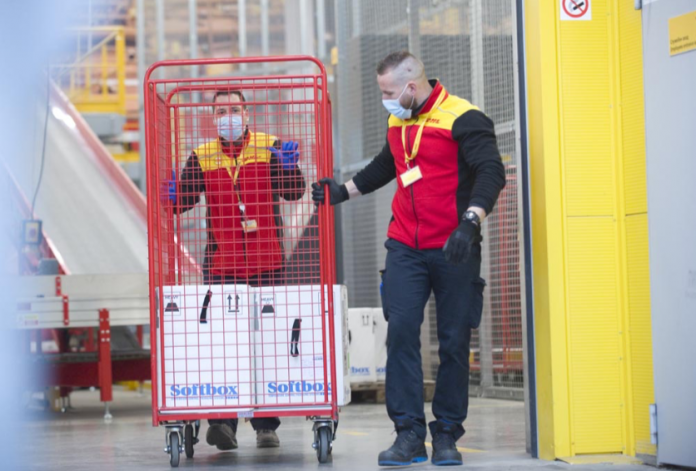Professor Richard Wilding argues that biochemistry is winning the battle against coronavirus, but logistics and supply chain will win the war
When at last the coronavirus pandemic is behind us, we may praise the success of the vaccination programme.
But how will the entry in the history books read? Will it talk about Pfizer, AstraZeneca and Moderna, or refrigerated trucks, syringe manufacturers, and the technology that mobilised a nation’s call to (provide their) arms.
I suspect it may be biochemists – the big-name pharmaceuticals that developed and manufactured the vaccines – that go down in history as winning the battle against COVID-19 – but it will be logistics and supply chain that won the war.
Mass vaccination: The ultimate logistical challenge
Rolling out a vaccination programme to an entire nation is massively challenging. The successful rapid deployment of a vaccine doesn’t just rely on the amount that can be produced; that is only half the story. To get the vaccine into people’s arms, there are myriad other factors that are just as influential, all of which come down to supply chain strategy and how it is rolled out in practice.
This includes overall process design as well as the availability of storage space, specialist transport solutions and medical supplies like syringes. Then there is the technology used to monitor and manage flows and geographical distribution of stock, and the availability of the people and skills to administer the vaccine.
The scale and speed required present huge challenges for supply chains, but – fortunately – we are in an age of highly flexible logistics where systems can innovate and adapt at lightning speed. Consider this: what happened when an entire population was asked to stay at home? Tesco was able to recruit 45,000 new staff in just two weeks to boost its home delivery service, with the Chartered Institute of Logistics and Transport providing a database to match transport needs and resources.
So, it can be done.
Additional logistical challenges to consider
But, with the coronavirus vaccines, there are some additional logistical challenges to consider. In the UK, we have procured effectively, taking advantage of any excess vaccine stock manufacturers have been able to supply. Using low wastage syringes, we are also getting 10% more doses out of the vials than projected.
But this will mean nothing if those doses do not reach people’s arms.
Like all drugs, vaccines are incredibly sensitive to their environment. To be effective, they must be kept under certain conditions.
The Pfizer vaccine, for instance, has a maximum shelf life of six months, but only when kept between -60oC and -80oC. Once thawed, it will last for 120 hours in the fridge and two hours out. When diluted for use, it must be administered within six hours.
The AstraZeneca and Moderna vaccines do not need to be kept as cold, but have similarly strict requirements.
To meet these requirements comes the need for specialist infrastructure and storage equipment, including freezer transport capable of keeping doses at -70oC (20oC below the normal lowest temperature), thermo-sensors to monitor the temperature of deliveries throughout their journey and effective fridges at vaccination centres.
Fast delivery, with 100% compliance to maintaining the cold-chain from manufacture to when the dose is administered to a patient is essential to minimise waste and ensure all stock is used within date.
Some wastage is, unfortunately, an inevitable consequence of a high-speed mass vaccination campaign. When 350 people are booked into a clinic at a few days’ notice, some do not show up. So, it is perhaps not surprising to hear reports of clinics quietly calling on teachers, police officers, supermarket workers, family and friends – anyone who can be available within minutes to receive a dose nearing its expiry. And who can blame them? The alternative – throwing away vaccine doses when millions of people are still at risk of catching COVID and passing it on – is unthinkable.
And it is heartening that, however challenging, we have yet to hear of precious vaccine doses being spoiled through carelessness in adhering to the storage requirements. Because, at the end of the day, the COVID-19 vaccination programme relies on people working in each element of the supply chain to make all the logistics happen.











